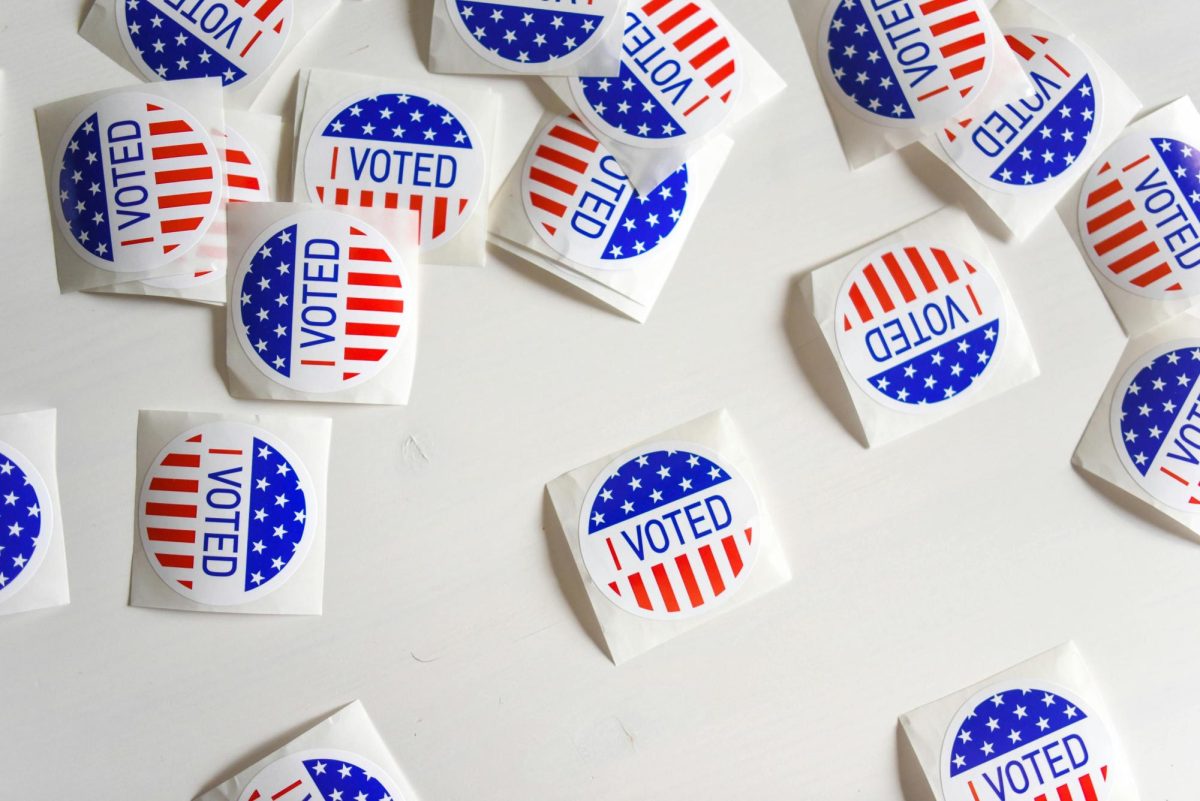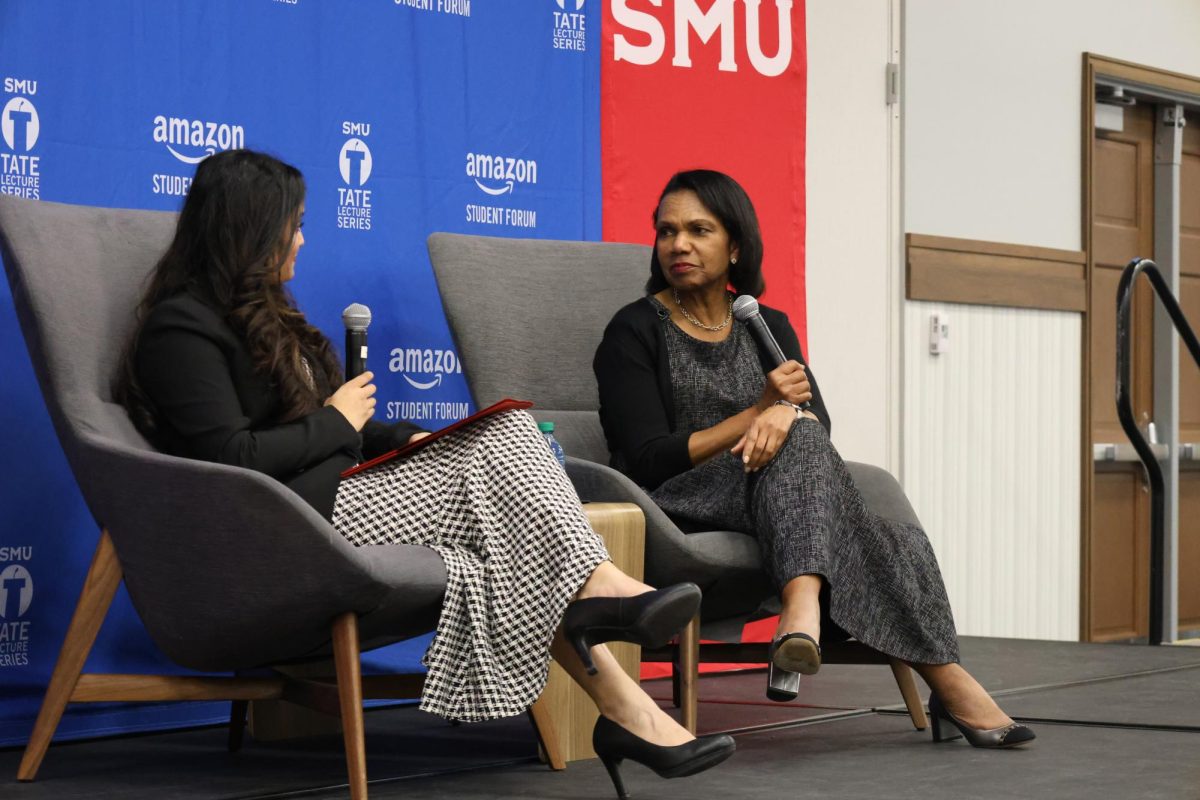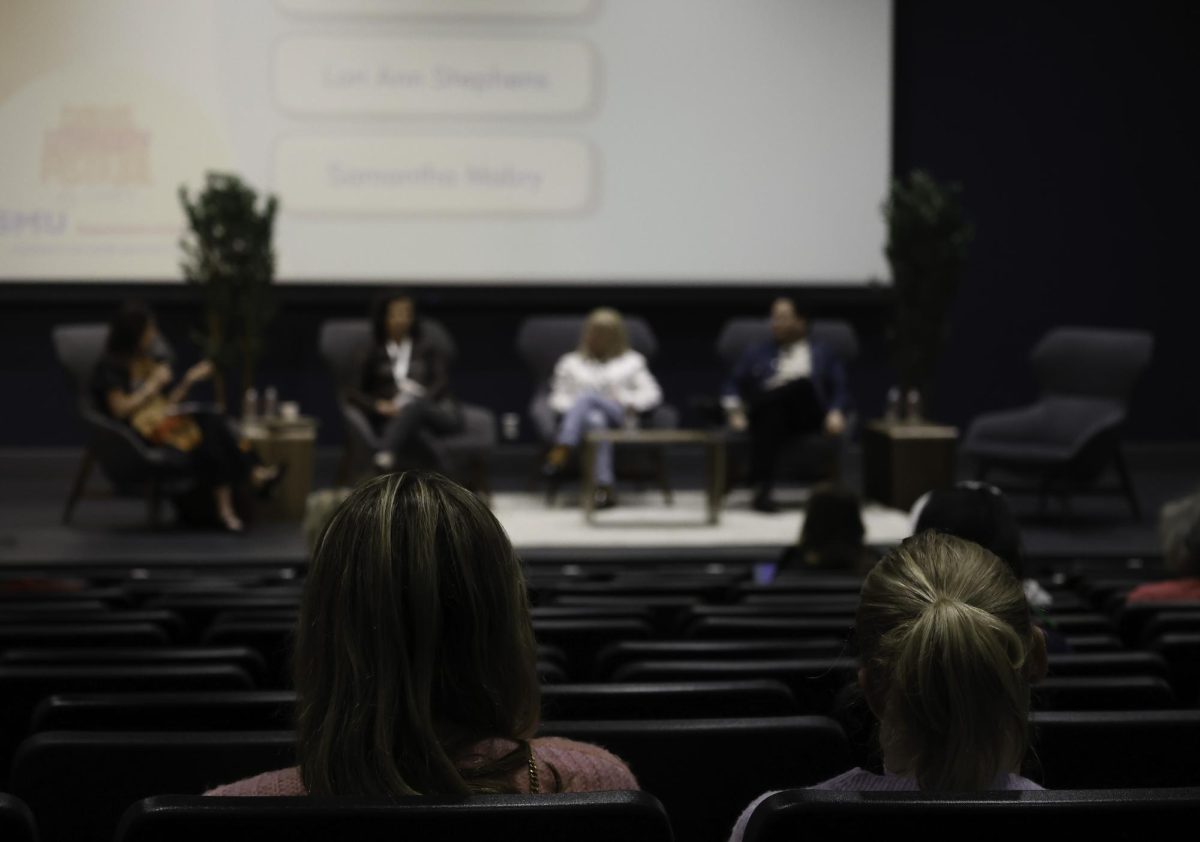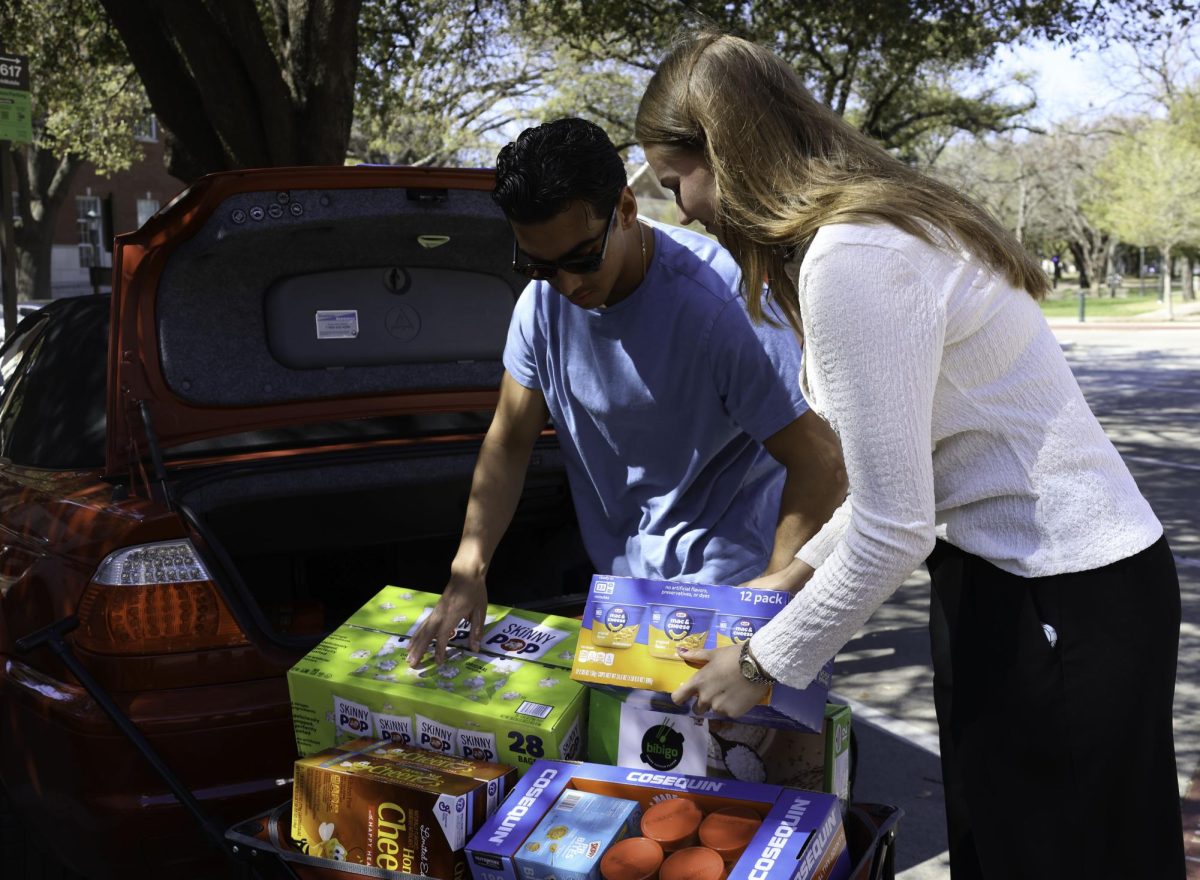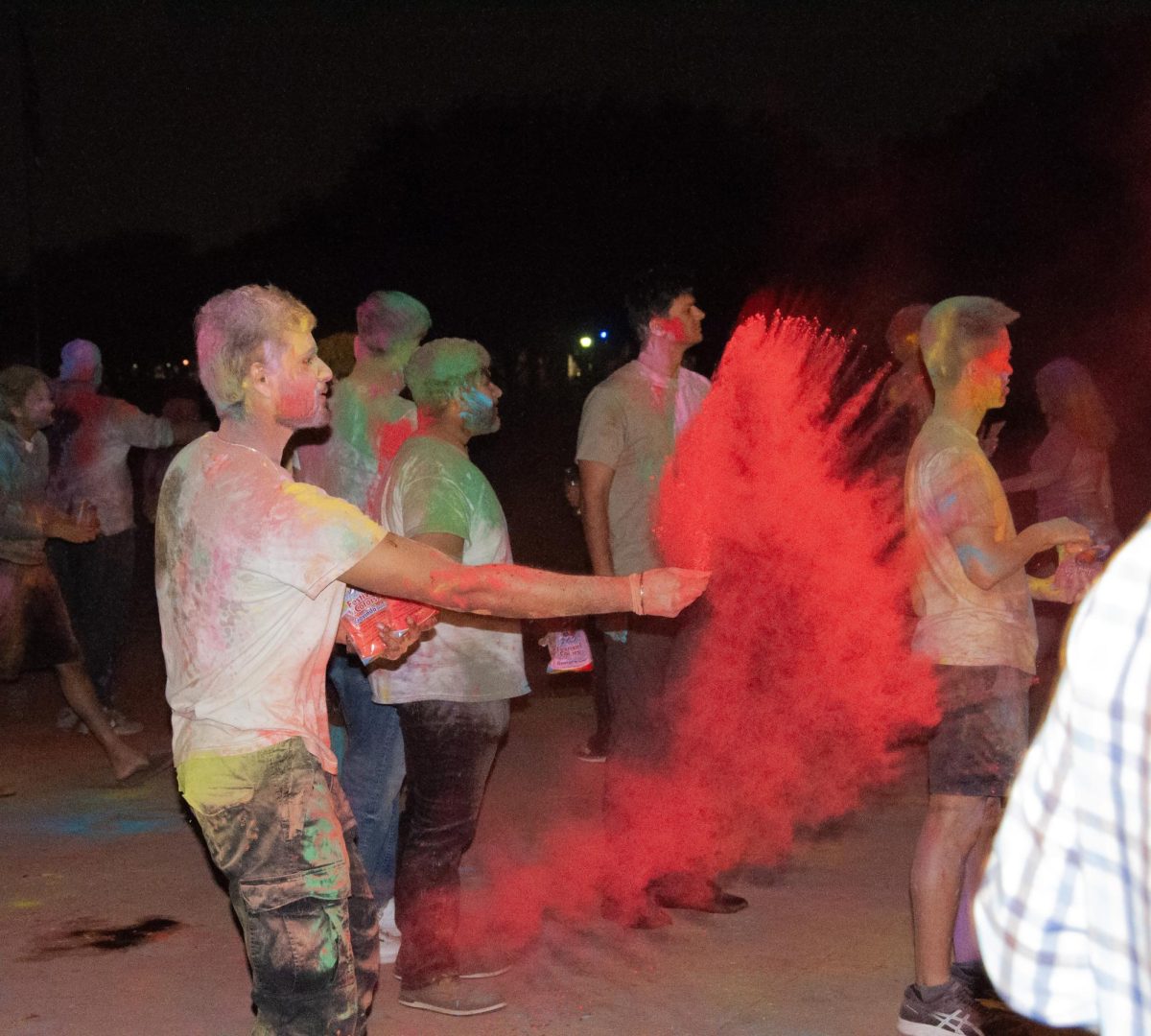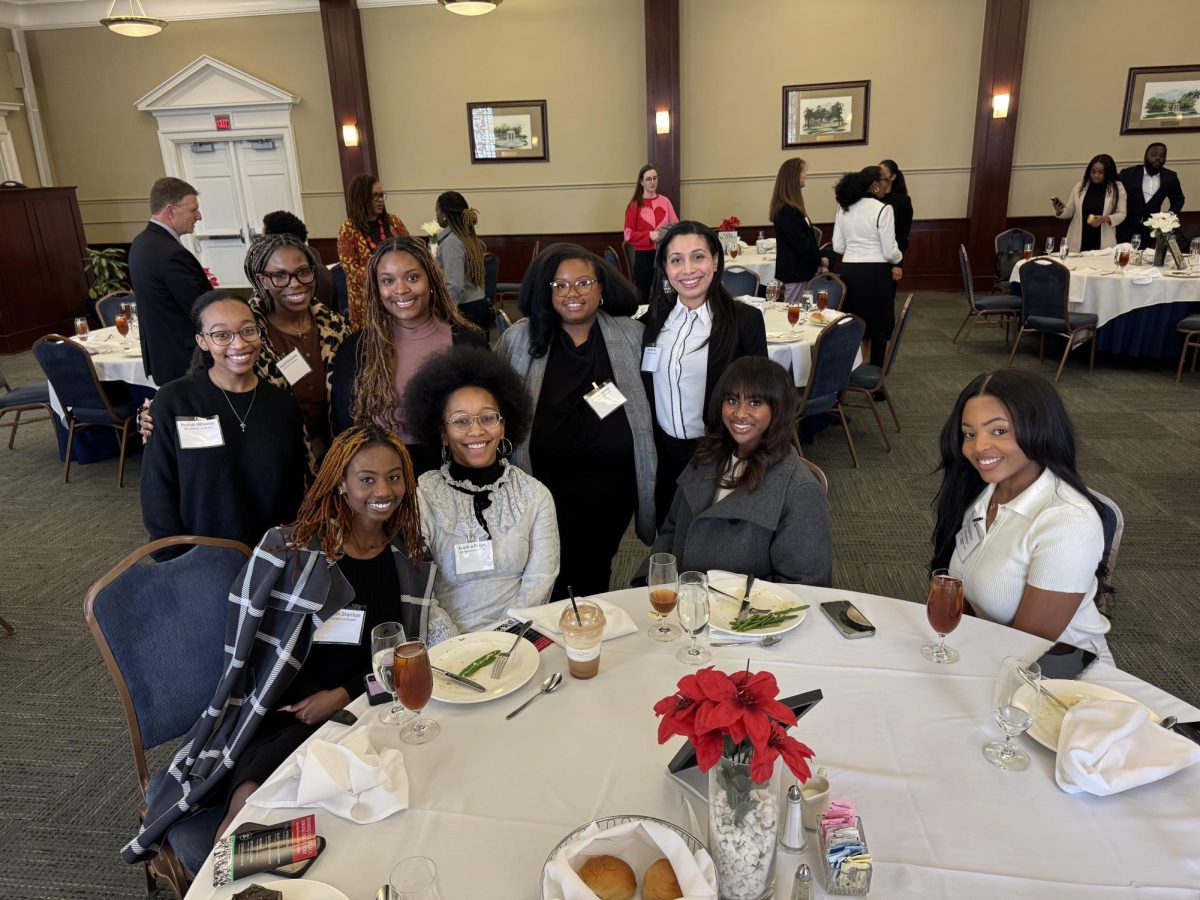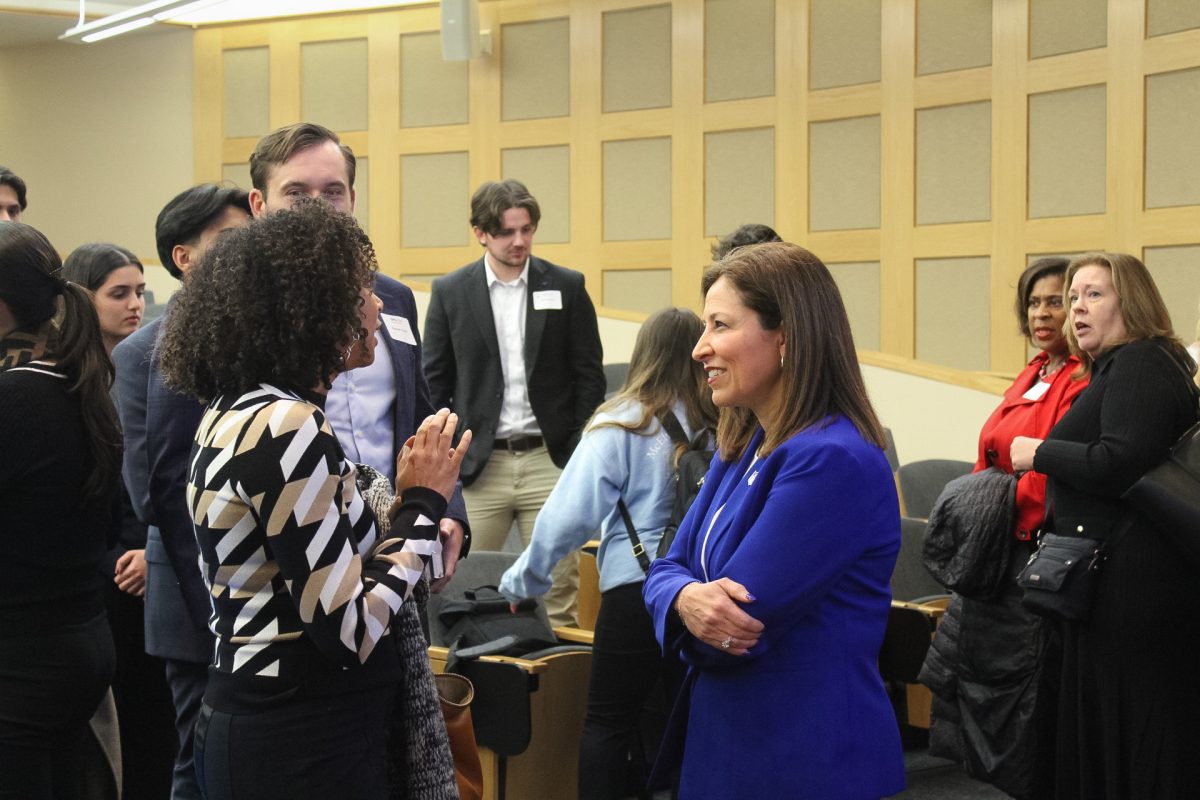Many Black male voters plan to sit out election
By Cambyll Francois
Emmanuel Binyam, a first-time Black male voter at SMU, finds this election one of small significance, choosing to instead sit this election out similarly to other Black male students on campus.
Many would assume that a candidate such as Kamala Harris, a Black Woman, would easily be the choice. According to NPR In 2008, when President Obama ran for office, 95% of black voters voted for him, while AP projects that only 70% of Black voters will vote for Harris in this upcoming election. This begs the question, if Black voters aren’t voting for Harris or Donald Trump who are they voting for?
“I’m not fully able to align myself with both of them and I find them both not good options for our country so I’d rather not involve myself in this voting process and wait for another one,” Binyam said.
First-year black voter, Micheal Afework, also plans to sit this election out. Both candidates allude to a type of hostility that won’t better the country, he said.
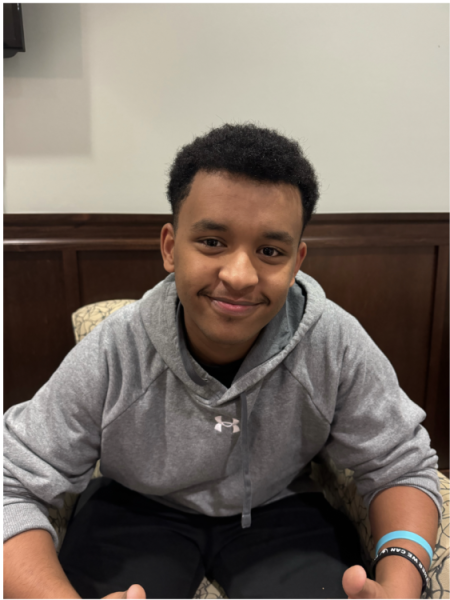
“I guess I’m not really a fan of the candidates,” he said. “I would say that both of them are pretty divisive and I don’t really know if I want to vote for any of them”.
The main consensus among both Binyam and Afework is a distaste for the face of this election. Regardless of if it’s Trump or Harris neither candidate is faring well among Black male voters on campus.
Black voters are projected to be a key target group in determining the outcome of this upcoming election. According to Pew Research, “Black Americans are projected to account for 14.0% of eligible voters in the U.S. in November”. Although this number isn’t as big as the Hispanic vote, Black voters could be the difference between losing and winning this upcoming election.
Sophomore Yaw Boateng is one Black male who plans on voting in this election. But his decision hadn’t always been easy. Before doing his own research he had also planned on not voting.
“I realized that was kind of being ignorant,” Boateng said. “It’s kind of like saying if I can’t change the laws I’m not going to do anything at all and even just for me it’s less about the concept of voting but about being informed on the government and policies and things going on in the world.”
Not all Black male voters are choosing not to vote in this upcoming election, but it’s abundantly clear that even those who have decided to vote have struggled with their decision. SMU Political Science professor Cal Jillson believes this is not a new phenomenon.
“Voting, like church-going or exercise, is [a] habit that once formed is pursued regularly,” Jilson said. “But if that habit is not formed early, a person is more likely to become a bystander than a regular voter.”
According to the Berkeley Institute For Young Americans based on the 2020 election, when certain policies are created that impact a specific group of voters this may increase the group of voters to the polls. This means that if policies created affect Black male voters then the probability of them voting will most likely increase.
When voters don’t make a habit of informing themselves politically, then, voting is less about informed decisions and more about relying on limited information.
“Exercising your vote is a right you have, and people fought for that right, so you have a responsibility to do the right thing,” Boateng said.
Complex ballot rules, uncertainty about candidates discourage some first-time students from voting
By Desi Sarraf
SMU Junior Brooke Adair stares at a series of tabs open on her computer as she tries to navigate information about voting. It’s election season, and a clutter of flyers she had gathered over the past few days are still not helping her understand the whole process: where to vote or how to cast a mail-in ballot as an out-of-state resident, like many SMU students.
Adair remembers her parents coming home with an “I Voted” sticker every few years, but she says they had never really talked about voting. Now that she is finally eligible to vote, Adair feels uneducated on the steps she needs to take to cast a ballot. Unsure where to start, she closes her laptop, pushing it to the side. She feels defeated.
As early voting gets underway in Texas on Monday, Oct. 21, Adair is among many young first-time voters who have decided to opt out of the election because they don’t feel prepared. Texas is among the states with the strictest voter ID laws and requires an excuse to vote by mail. As of September, the number of registered young voters still lagged behind 2020, according to a survey by Tufts University Center for Information and Research on Civic Learning and Engagement or Circle on the 2024 election.
“The entire process is extremely hard and confusing,” said Adair, a 20-year-old SMU student who grew up in Fairfield, Connecticut.
Sadie Klepfer, a 19-year-old SMU freshman from Indiana, also says she is not voting in the upcoming election.
“I care about what’s happening,” she said. “I’ve got a lot going on, like navigating myself through my first semester of college.”
While she wants to engage with issues like climate change and reproductive rights, the challenges of navigating voting as an out-of-state student feels overwhelming.
It highlights the struggles that many out-of-state students face navigating absentee ballot complexities, even when they may care deeply about the issues at hand.
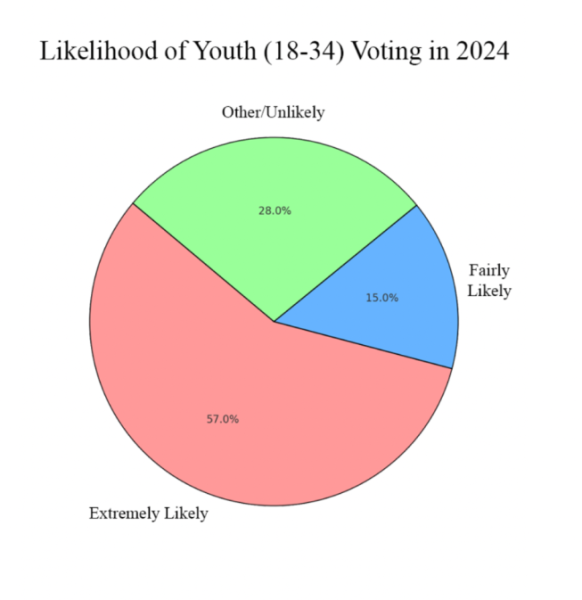
Each state has different guidelines and deadlines for mail-in ballots. In Texas, only voters who fall into approved categories, which includes being out of the county of residence on Election Day or during early voting, may apply for a mail-in ballot by Oct. 25. Voted ballots must be postmarked by 7 p.m. Nov. 5 and received by 5 p.m. the day after Election Day. All voters are required to show a photo ID with their current address.
As a college student in Texas watching her peers prepare to vote, Klepfer feels left behind.
“It’s tough being in a new state and not knowing how things work,” she said. “I want to vote, but I don’t even know where to begin.”
It’s not just the process of voting that is deterring some young people from voting. There’s also uncertainty about the candidates and the issues.
According to the Tufs survey, oOf the young voters under 34, 16% percent are undecided., according to the Tufts survey. The lLikelihood to vote is lower among Black and multiracial youth, and those without college experience, the survey said.
“Honestly, I just don’t like either candidate,” said Lilly Charlson, another SMU student. “I don’t want either one of them running our country and quite literally do not want to give one of them my vote.”
This sentiment resonates across diverse groups, showing that dissatisfaction with the candidates isn’t limited to any one background.
“I don’t think that the candidates care about my rights, especially as an Asian American citizen,” said Sinoeh Yanes, a 21-year-old male citizen. “So why should I vote for people who don’t care about me?”
Unregistered voters feel disconnected from the political process. They wonder if their vote even makes a difference for candidates who seem out of touch with their concerns.
“There are many reasons people don’t vote, but it often boils down to them not being enthusiastic about a candidate and thinking their vote doesn’t matter,” said Zoe Hess Carney, an SMU professor focused on transnational political communication.
“It might not seem like their vote doesn’t count for a couple reasons,” she said. “They may not live in a swing state, or they don’t see a connection between their vote and how their day-to-day lives could change.”
Information about issues and elections, and support from their communities, can help youth engage in democracy—especially if they’re struggling, Carney added.
“The citizenry needs to understand how politicians, all the way down the ballot, make a difference to their lives,” Carney said.
While some young people are skipping the ballot box, a majority of young people 57% of youth, up from 46 percent in 2022, say they’re “extremely likely” to vote in 2024, according to Tufts’ Circle survey. Of those, most prefer a Democratic presidential candidate to a Republican. And they are concerned about major economic and social issues like the cost of living and gun violence, according to the survey.
Klepfer’s first-year roommate, Reagan Evans, is voting because she lives locally in Texas. The process was straightforward for Reagan, who was able to register easily and is looking forward to casting her ballot on Election Day.
“It’s different for me since I’m from here,” Evans said. “I didn’t have to worry about figuring out absentee ballots or anything like that.”
Evans has a distinct perspective. As a local, she feels confident in her ability to vote and sees it as an important way to have her voice heard.
“Voting is a big deal, especially with everything going on in the world right now,” she said. “I’m lucky that it’s easy for me, but I know not everyone has that experience.”
Jaclynn Fowler contributed to this report.
Transgender voters have concerns over Texas voter ID policy
By Caroline Corbin
A new policy that prevents Texans from changing the gender marker on their driver’s license and birth certificate to match their identity may be creating challenges at the election polls especially among young transgender voters.
“My current ID is old and has a gender marker F,” SMU Junior Jaye Ryden said. “Now I have to accept that I’m not going to be able to vote as Jaye. But I’d rather vote than not.”
Texas requires voters to present a photo ID at the polls when voting in person, but a matching gender identity or presentation for your ID photo or marker isn’t required by law.
Ryden filed a court order in August with Translegal Aid of Texas to officially forgo his dead name and update his gender marker to match his identity. But it was too late. The paperwork takes 25-30 days to file. As of August 21, Transgender Texans can no longer change the gender marker on their driver’s license and birth certificate, even if they presented a certified court order.
Under previous Texas Department of Public Safety (DPS) rules, residents could change the sex designation on their driver’s license if they presented an amended birth certificate, a certified court record, or if a clerical error had occurred. Two years ago, Texas Attorney General Ken Paxton directed DPS employees to create a list of individuals who had updated their gender markers on driver’s licenses and department records.
DPS employees were instructed again in August to “scan into the record” any court orders or related documents submitted for gender change requests. However, it remains unclear how this information will be utilized.
Advocates fear that this data could be used to further restrict transgender individuals’ ability to transition, and the recent policy change has reignited these concerns.
The stricter policy could lead to further barriers for those seeking gender-affirming legal recognition, said Ash Thye, an SMU alum and trans healthcare advocate for Planned Parenthood.
“How is Texas a democracy if transgender people spoken about in the media and politics don’t have a voice?“ Thye said. “When you go to the polls, have a buddy and know your rights. That way, you or the person who’s going with you, can say that you know this ID is a valid document if they say this is unacceptable as a form of ID.”
Thye recalled his first voting experience in 2016 and other past moments when officials scrutinized his ID, their demeanor noticeably shifting after seeing this disconnect between his gender presentation and gender marker.
“I almost didn’t go vote that day in 2016, and back then transgender healthcare wasn’t even a national conversation,” Thye said. “The weight of being visibly different was already palpable.”
Texas House District 115 Rep. Julie Johnson, a Democrat who is running for Colin Allred’s U.S. Congressional District 32 seat, is working against the ban on gender marker changes and recent anti-LGBT legislation. Allred, a Democrat, is battling incumbent Republican U.S. Sen. Ted Cruz in the Texas race for U.S. Senate.
After breaking into Texas politics in 2018, Johnson is the first Democrat to win her House seat in 40 years. She is also one of the first openly gay members of the Texas Legislature, and helped found the Texas LGBT Caucus.
“In the Texas legislature, we [The LGBT Caucus] play a lot of defense, honestly, because Republicans are in control and the party uses the LBGT community as a punching bag for their political gain to try to win elections and demean us,” Johnson said. “The assault on the freedom of parents and transgender people to control their healthcare and gender markers is just hateful. It’s targeted legislation.”
Johnson hopes LGBT amendments to The Equality Act pass in Congress to amend the Civil Rights Act of 1964 and other civil rights laws to establish explicit federal nondiscrimination protections for LGBTQ+ people in housing, employment, public education, and more, including at the polls.
“Transgender people and young people need to vote in Texas because their lives are critically dependent on the outcome of this election,” Johnson said. “They can’t put all of their hope into other people voting. Your vote is your power and when you exercise your vote, you’re exercising your power to control the policies that this government has that affect you. Don’t ever cede your power to other people.”
Young women need to know the power of their voices at the polls
By Clair Lapina
SMU senior Michaela Murphy remembered a night with friends over the summer.
“We were just hanging out, and politics were brought up,” she said.
One of her friends was unsure if she could even vote, and Murphy helped her figure it out.
“It made me realize how important it is to help each other out with this stuff,” she said. “Every vote matters, especially in local elections where it really affects our community.”
For Murphy, moments like this drive her passion for voter engagement. She acknowledges that she isn’t an activist, but she cares about her community and wants to see change. She’s passionate about making sure young women, in particular, know the power of their voices at the polls.
Flipping through voter registration forms recently at Fondren, the energy was high as students passed by, and Murphy couldn’t help but think about the first time she helped someone register to vote. It was a small moment, but it left a big impact.
Murphy’s story highlights the significance of youth engagement in the electoral process, particularly among young women voters. She stands for the need to address issues facing women in society, which she feels are often overlooked by politicians. Murphy faces challenges like balancing her studies with staying informed about political issues and understanding the impact of her vote.
The 21-year-old student from New York grew up in a diverse community that shaped her understanding of the importance of representation and civic engagement. Now Murphy is motivated to vote because she believes her generation’s perspective is crucial for shaping policies that impact their lives.
Data from the U.S. Census Bureau shows that in recent years, the number of women registered to vote in the U.S. has typically been about 10 million more than the number of men registered to vote. This increase underscores the importance of young women voters like Murphy, who are passionate about issues that directly affect their futures, such as education and healthcare. Data from KFF reveals that 26% of women voters have inflation listed as their biggest concern in the 2024 election, 24% have threats to democracy as their biggest concern and 13% abortion.
Voting for women is important in today’s political landscape, said Sydni Walker, the vice president of the SMU Feminist Club.
“For me personally, as a female voter, being valued and respected by the government is extremely important,” Walker said.
The current political climate often overlooks the voices and needs of young women, she added.
“Right now, that isn’t happening,” she said. “This isn’t the Texas I grew up in.”
Walker’s determination to see change is fueled by a desire for a government that truly represents diverse voices.
“I want to vote for a champion for women,” she added.
Youth voting is especially important, Dr. Jennifer L. Lawless, a professor of political science at the University of Virginia, stated in an email.
“Women, especially young women, are a crucial voting bloc, and their engagement can significantly shape the future of policy on key issues like healthcare and education,” she wrote.
As she continued her studies, Murphy thought more about what voting really meant to her. The conversations around campus often revolved around the same issues Lawless talked about, in addition to job opportunities for women.
“One of my friends told me she didn’t see the point in voting,” Murphy recalls. “She didn’t think her voice mattered. But after we talked about how much was at stake she realized her vote did matter.”
Middle East conflict key issue for Muslim voters
By: Ava Bates and Caleb Gould
Muslim voter Nina, a Texas native and SMU graduate, is preparing to cast her ballot in her first major election, feeling the weight and responsibility not just for herself, but for her community.
As a young Muslim woman, Nina sees this election as a crucial moment to stand up for the values and rights she holds close.
“It’s not just a vote,” she said. “It’s my chance to stand up for everything I care about and for my community and my family.”
Nina, 23, was raised in Dallas by immigrant parents who taught her the importance of speaking up for her rights. Her determination to participate mirrors a growing trend of political engagement among Muslim voters in Texas. Many, like her, are eager to use their votes to challenge negative stereotypes and push for policy changes that reflect the needs of their community.
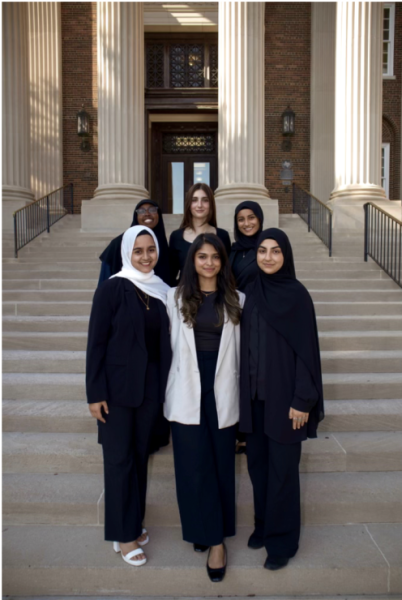
Nina is part of a growing wave of Muslim voters in Texas, where 62% of Muslims identify as Democrats or lean Democratic, according to Pew Research. For Nina, issues like immigration, civil rights, and religious freedoms are top priorities.
At SMU, the Muslim Student Association (MSA) is also part of this political awakening. MSA President Nabeela Khan emphasized the trust issues many Muslim voters feel after being let down by previous candidates, especially concerning U.S. involvement in the Israel-Palestine conflict.
“We trusted a candidate before, and it just backfired on us,” Khan said. “A lot of people have trust issues now.”
The Middle East conflict is a key issue for Muslim voters, and for many, where a politician stands on U.S. aid to Israel will determine whether they vote for them.
“So many people and so many other nations have declared it (the killings in the war) as inhumane, like, war crimes, very wrong. But you know, America is still arming,” said Khan.
Khan feels that political figures and other voters express their own trust issues with muslim voters through media outlets, distinguishing muslim voters from other U.S. voters. She insists that this stereotype is untrue.
“I want a candidate that sees Muslim as their own people, I don’t want a distinction,” Khan said. “I feel like Arabs are seen as barbaric, and you can even see in a lot of American media too.”
Other young Muslim voters, like Yousuf Farra, are also preparing for their first major election.
“I’m excited,” he said. “People sort of don’t know who to vote for, but I’m actively doing my research. I’m trying to sort of have an educated vote and not sort of just vote for whoever everyone is voting for.”
Despite these challenges, Nina remains committed to voting, understanding that her voice, along with those of other Muslim voters, could have a significant impact in Texas.
SMU Latino voters weigh in on an important election
By Liadan Corbally
Jackie Gonzalez recalls volunteering in high school educating people on how to register to vote and working in the polls.
Gonzalez remembers her high school taught a whole course on how the government works, where and how to vote, and how the voting process works.
“I definitely think that the US should kind of push to at least inform voters on what the process to even vote is like. I feel like a lot of people just think, ‘oh, it’s like, majority vote,’ and that’s not necessarily how it works,” Gonzalez said.
Every vote is crucial, she said, and it is important to stay up to date on deadlines during the election.
Gonzalez, a Dallas resident and SMU senior, hopes to stay in Dallas and acquire a job in business. Gonzalez mentions that one of the issues she has faced is educating herself on the candidates and finding the most important issues to focus on.
Latino college students from SMU are emerging in hopes of making a change in this year’s presidential election. Texas is home to one of the biggest Latino populations, which makes their vote a driving force.
According to Unidos Us, Hispanics are the second-largest group of voting-age Americans and can be a stabilizing force in American politics. Along with that, more than 80% who are registered to vote participate in elections.
Elise Ramirez, SMU senior, feels it is her responsibility to vote due to her commitment to the betterment of the community.
“I want to fight for the people in my community, the fight for women’s reproductive rights and all those affected by injustices in our country,” Ramirez said.
Ramirez says that the Harris Walz campaign has resonated most with her because of the efforts to boost diversity.
“I feel like if those numbers have increased, it’s because of the Harris Walz campaign, because they are making an effort to diversify the nation with voter registration, so not only in the Hispanic community or different people of color, but also with younger voters,” Ramirez said.
Jessiah Ruiz is an SMU senior and member of the campus organization HOLA—the Hispanic or Latino Association Ruiz noted that it is important for people to vote, especially young minority college students wanting to make a change.
“I’m optimistic for our generation, the change that can be made. I’m not currently optimistic for the way politics looks right now, if anything, I feel like it’s actually a little scary,” Ruiz said.
Many of the Latino students at SMU plan on voting on campus at Hughes-Trigg student center. SMU makes it easy for Texas residents by offering polls, so students do not have to commute to a voting center.
“Living in a university setting has made it easy for me to register because there are people that are always telling you, register to vote. Being in a more urban setting and also specifically the university setting, it will be easy to vote,” Ruiz said.
Gonzales is excited to be able to vote instead of just volunteering at the polls.
“I feel like knowing that I have the right to vote is pretty motivating, because I know there’s a lot of people who can’t vote, so I want to exercise my right,” Gonzalez said.



